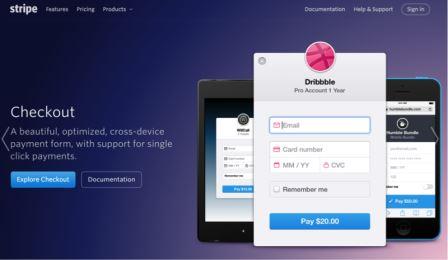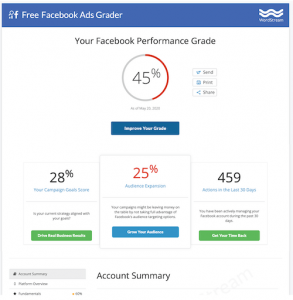With hundreds of services to choose from, how do you choose the payment processing company that’s best for your business and your customer’s experience? Columnist Steve Olenski reveals his top choices to help you find the right fit.

In the simplest terms, a payment processor is a company that handles transactions between two parties, such as a merchant and a customer. It accomplishes the payment by relaying the payment information, like a credit card, from the customer to the merchant’s preferred bank account.
In most traditional transactions, payment processors involve the following parties:
- the customer;
- the merchant/business owner;
- the payment processor;
- the payment gateway — if not already combined with the processor;
- the bank/credit card company of the customer; and
- the bank of the business.
As a retail marketer, you’ll know that choosing a payment processor is not solely a decision for the finance department. That’s because it’s an important (some would say the most important) part of the user experience, and choosing the wrong option could negatively affect your conversions.
Besides the overall experience, you will also want to consider what types of payments the processor accepts, what fees are charged and the platforms where transactions can occur, like online or mobile app.
However, since there are hundreds of payment processing options, here are 10 of the best options to consider.
1. PayPal
For merchants who are looking for a low-volume payment processor, PayPal has proven to be a solid choice since it debuted in 1998. On top of having budget-friendly prices, PayPal operates in more than 200 countries and in 26 currencies and allows users to integrate PayPal checkout on their websites, process payments through a browser, app or reader and extend credit to customers.

2. Due
Due offers an end-to-end service that encompasses the entire billing and payment process for freelancers, small business owners and companies. Besides offering time tracking, project management and customized online invoicing options, the company recognizes that your business may cross the globe.
The invoicing and payment processing features include more than 100 languages, currencies and tax systems, as well as international credit card processing.

3. Stripe
There isn’t such a thing as a “one-size-fits-all” payment processor for online retailers. However, Stripe gets awfully close, thanks to being a customizable payment solution.
Stripe was designed for developers who can then tinker with the company’s APIs to create the product that best suits their needs. Stripe allows you to accept credit card, debit card and bitcoin payments from more than 130 different currencies. There’s also flexible billing and a modest 2.9 percent + 30¢ per successful card charge.

4. Flagship Merchant Services
If your site gets a high volume of credit card transactions, then Flagship Merchant Services is arguably your best option. As an all-in-one credit processor, the company offers low, flexible rates for businesses on a monthly basis, as opposed to signing a long contract.
Processing options include in-person, online and mobile credit card processing. Flagship also is known for its outstanding customer service and easy application process.

5. Payline Data
Payline Data is one of the most well-reviewed payment processors currently available. Besides giving merchants the chance to accept payments in-store, online and through a mobile app, Payline Data provides cash advances for merchants, customer insights, QuickBooks integration and an interchange-plus pricing structure that comes without a cancellation fee.
There’s also top-notch customer service whenever you need assistance.

6. Square
Square gives you the power to accept payments wherever you are, thanks to innovative products like its magstripe reader, contactless + chip reader and stand that converts your mobile device into a one-of-a-kind payment processor.
Square is also customizable, which means that it has solutions for a wide range of businesses, including everything from restaurants to beauty professionals to transportation companies to professional services.

7. Adyen
Founded in 2006, Adyen is a global multichannel payment company based out of Amsterdam. The company allows users to accept and transfer money electronically in real time online, via mobile or in person.
Since this platform connects with some 250 payment methods in North America, Latin America, Europe and Asia, it’s one of the leading processors for anyone involved in global commerce.

8. BitPay
BitPay, which was founded in 2011, is one of the largest bitcoin payment providers in the world. In fact, the company is responsible for more than $1 million in transactions every day.
BitPay gives users the opportunity to convert bitcoin payments into their choice of nine currencies in 38 countries instantly to avoid volatility. The company also has partnered with PayPal and Merchant Acquirers such as Global Payments and Alternet Systems.

9. GoCardless
GoCardless is headquartered in the UK and is an online direct debit provider. With GoCardless, users can not only accept payments through an easy setup, but they can also automate payments, track the status of a payment and integrate the service into their site with their REST API.
Best of all? GoCardless is cheaper than PayPal, with 1 percent capped at £2.

10. Cayan
Originally known as Merchant Warehouse, Cayan rebranded in 2015 to focus on features like online payments and point-of-sale purchases, as well as giving developers the chance to access NFC (near-field communication) and EMV (chip technology) payments through a flexible API (application programming interface).
The Boston-based payment processing company offers both tiered and interchange-plus pricing at a competitive rate and has a low monthly fee of $4.95.

Some opinions expressed in this article may be those of a guest author and not necessarily Marketing Land. Staff authors are listed here.
Marketing Land – Internet Marketing News, Strategies & Tips
(281)
Report Post








